Caring for Middle School Readers: A Parent's Guide to Books for 6th Graders
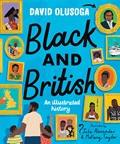
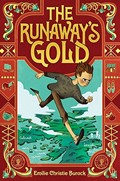
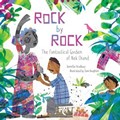
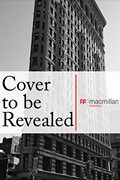
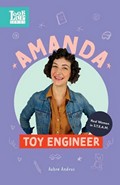
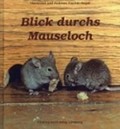
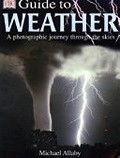
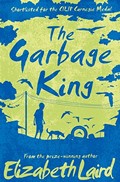
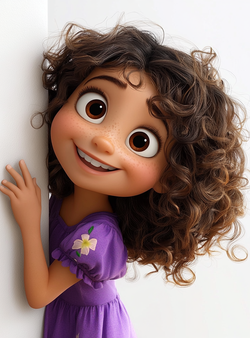
Introduction
Welcome, 6th-grade parents! You are entering an exciting phase in your child's reading journey. At this age, young readers have even more sophisticated tastes; they can better handle complex themes and explore a wider range of genres. This guide will help you through the diverse world of literature for 6th graders by showing you how to choose engaging books that will maximize learning potential and foster a lifelong love of reading.
Books become a very important means for your child to learn about the world, other people, and more about themselves as they enter middle school. Books for 6th graders span science fiction to adventures to graphic novels, affording many avenues for growth, thought, and self-discovery.
Benefits of Reading Books to 6th Graders
Reading at this pivotal age offers numerous benefits that extend far beyond entertainment:
-
Advanced Vocabulary: Books such as "Wolf Hollow" by Lauren Wolk offer that exciting level of vocabulary that expands your child's communication.
-
Critical Thinking Skills: Stories like "Towers Falling" by Jewell Parker Rhodes help readers reflect upon situations entailing contingencies and possibilities.
-
Emotional Intelligence: Novels like "Raymie Nightingale" and "Louisiana's Way Home" by Kate DiCamillo help young readers navigate complex relationships and self-discovery.
-
Cultural Awareness: The books "The Magic Fish" by Trung Le Nguyen and "A Glasshouse of Stars" by Shirley Marr introduce young readers to cultures and experiences that help to increase their empathy and global understanding.
-
Tough Themes: "Ghosts" by Raina Telgemeier talks about illness and cultural heritage in an accessible way allowing readers to process tough themes.
-
Imagination and Creativity: Science fiction titles, such as "The Wild Robot" by Peter Brown, spur the imagination and foster creative thinking.
-
Historical Understanding: Through historical fiction novels such as "Wolf Hollow," the past comes alive and enables a student to make personal connections with history.
-
Visual Literacy: Graphic novels like "Small Things" by Mel Tregonning develop visual interpretation skills with traditional reading.
-
Empowerment and Resilience: Books involving a little boy overcoming challenges include "Stuntboy, in the Meantime" by Jason Reynolds and "Rebound" by Kwame Alexander, which motivates readers themselves to overcome their challenges.
-
Improved Academic Performance: Good reading skills translate into improved performance in all subjects and better preparation for upcoming middle school challenges.
Choosing the Right Books for 6th Graders
Choosing books that are both appropriate and interesting for 6th graders depends on several factors.
-
Reading Level: Find books that are challenging without frustration. "Serafina and the Twisted Staff" by Robert Beatty has rich vocabulary and plot complexity that stretches comprehension.
-
Interest-Based Selection: Think about themes that interest your child. Sporty enthusiasts love Kwame Alexander's "Rebound. "
-
Diverse Perspectives: Books that open windows into different cultures and experiences will serve well, such as "A Glasshouse of Stars" by Shirley Marr.
-
Genre Diversity: Expose them to a wide range of genres: mix realistic fiction with fantasy, historical fiction with science fiction, and prose with graphic novels.
-
Thematic Relevance: Select books whose theme relates to middle school students in respect to identity, friendship, and belonging.
-
Aesthetic Appeal: Graphic novels, such as "Ghosts" or "The Magic Fish," are an excellent way for readers to experience in-depth storytelling.
-
Award Winners: Books that have won literary awards are plentiful and provide high-quality writing with intense and important themes.
-
Series and Standalone Books: Books in series facilitate continuing reading behavior while standalone books provide both variety and challenge.
Recommended Books for 6th Grade Students
Here are some top selections for 6th graders with brief descriptions of each title.

Black and British
By

The runaway's gold
By Burack, Emilie Christie
Description: "The protagonist of this historical novel, which is set in the Shetland Islands and also New York City around 1840, is Christopher Robertson, a crofter and son of a crofter (small, struggling tenant farmer). When Christopher's brother frames him for the theft of a bag of coins, Christopher must leave home and embark on a journey to return the coins and clear his name"--

Rock by rock
By Bradbury, Jennifer
Description: This luminous picture book tells the fascinating true story of artist Nek Chand and how his secret art project—hidden away in a jungle—became one of India's most treasured wonders, second only to the Taj Mahal. In the bustle of the busy streets of Chandigarh, India, Nek Chand saw something no one else did. Where others saw rocks and stones, Nek saw the boyhood village he missed so dearly. Where others saw broken plates and glass, Nek saw laughing men. And where others saw trash, Nek saw beauty. Nek Chand's incredible rock garden, built from stone and scraps and concrete, began as a way for him to express his long-felt grief at having to leave his boyhood village due to the violence caused by the partition of India. What began as a secret and personal (not to mention initially illegal) project became so much more, not only to Nek but to all of India.

Hypnotize a tiger
By Brown, Calef
Description: The Critterverse. Sir Parrot -- Clarence -- Camera Bear -- Pigeon Frogs -- Tadschool -- The Toothies -- Bo -- Geese -- Turtle Fez -- Sea Bats -- The Vulture -- Rooster Says -- My Peeps. Lazyhead -- Ezmeralda -- Hugh -- Cap'n Power -- Texarkana Bella -- Lady Calderhat -- Greta -- Lou Gnome -- Knight, Schooled -- The Insect Section. Pupae -- Like a Louse -- Ants -- Fleas -- My Hive -- Infested -- Interview with a Termite -- Poems of a Particular Vehicular Nature. Velocipede -- My Skateboard -- UFOs -- A Nice Road Trucker -- Mike's Trike -- Carsick -- Skyscraper Rocket -- Hoverbus! -- Schoolishness. Hallways -- Percival -- Tomato Demand -- Heavy Load -- Foodie Bully -- The Gym Teachers -- The Cough -- Snow Day -- Facts Poetic. Big-Hair Cats -- Onions -- Thistle Guards -- Jurassic BBQ -- Roman Pets -- Gophers -- Icarus Delivered -- Tubadours -- Dangeruff -- Sled Dogs -- Pandoradox -- Frozen Oboe -- Minotaurs -- Word Crashes. Mr. Newburg -- TV Mindy -- Li'l Gorilla -- Croc and Alli -- The Stork -- Ogre and Friends -- Hippos -- Yak and Woody -- Special Delivery -- Shopper Cherubic -- Good (and Not so Good) Eats. Catsup Cats -- Not Berry -- The Loofah Torte -- My Falafel -- Mango Mail -- Royal Gravy -- Bubble Crumbs -- Biscotti Chop -- The Snack Plan -- Licorice Fish -- Miscellaneous Silliness. The Doublenose Hotel -- The Upside -- Satellites -- Who? -- My Nest Egg -- Just as Well -- Go, Music! -- Q&A with Calef Brown.

Amanda, toy engineer
By Andrus, Aubre
Description: ccording to the Society of Women Engineers, only 13 percent of engineers today are female. AMANDA, TOY ENGINEER celebrates Amanda, a mechanical engineer and marathon runner who makes the impossible possible every day. In this book, young readers will: learn how engineers like Amanda tackle problems that have never been solved before- and learn how they can start thinking like an engineer, find out how Amanda turns an idea into a toy, then sketch their very own toy idea within the pages of this book, iscover how kids around the world play differently and how scientists study play.

A look through the mouse hole
By Fischer-Nagel, Heiderose
Description: Photographs and text observe the behavior of a family of mice living in a basement, comparing their habits to those of outdoor mice. Includes information on the care of pet mice.

Guide to weather
By Allaby, Michael
Description: Explores a wide range of weather topics, including climate and seasons, wind and gales, lightning and thunderstorms, hurricanes and tornadoes, solar wonders, and weather forecasting.

The garbage king
By Laird, Elizabeth
Description: When disaster strikes their family, Mamo and Dani are forced to live as street urchins in the slums of an Ethiopian city, where they are taken into a gang led by a tough but likable boy named Million.
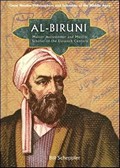
Al-Biruni
By Scheppler, Bill
Description: Focus on the Middle East -- Islam in the Middle Ages -- The man and his studies -- Struggle and instability -- In the court of the Mamanids -- In the court of the Ghaznawids -- A master of astronomy -- al-Biruni's key writings -- Timeline.
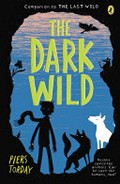
The Dark Wild (The Last Wild)
By Piers Torday
Tips for Maximizing Your Child's Learning from Books
-
Independent Reading Time: Encourage the practice of daily, independent reading time.
-
Discussion of Books: Discussion of themes, characters, and plot twists. In the case of "Towers Falling," discuss how historical events still affect the present.
-
Connect: Encourage your child to connect book events to their life experiences or current events.
-
Use Different Formats: Balance traditional books with graphic novels, audiobooks, and e-books to keep reading fresh.
-
Visit the Library Regularly: Make choosing new books an adventure and expose your child to a wide variety of options.
-
Create a Reading Challenge: Set goals for numbers of books or different genres to read, with rewards for meeting milestones.
-
Family Book Club: Choose a book to read by all family members and discuss the story, such as "The Wild Robot" or "Wolf Hollow."
-
Encourage Critical Thinking: Promote open-ended questions regarding the books and foster analysis and interpretation.
-
Add in Nonfiction: Match fiction readings with nonfiction about the same topic to extend students' knowledge.
-
Respect Their Choice of Reading: While guiding your child toward quality reading, allow them to explore their reading interests.
Why Choose MoBoo for Books for Your 6th Graders
At MoBoo, we nurture young readers by supporting parents in their children's journeys through literature.
-
Curated Selection: our expert staff selects books that are age-appropriate, engaging, and thought-provoking for 6th graders.
-
Diverse Collection: We major in books that represent diversity in culture, experiences, and perspectives as included in our recommended lists.
-
Knowledgeable Staff: Our staff has been trained to recommend books which will meet your child's interests, reading levels, and educational goals.
Navigating Sensitive Topics in Middle Grade Literature
As they enter the 6th grade, students increasingly deal with mature themes. Parents stay involved by these means.
-
Read with Your Child: This allows you to discuss any challenging content together.
-
Open Communication: Allow your child to feel safe asking questions about the books they read.
-
Context is Key: Help your child understand historical or cultural contexts that frame sensitive topics in books.
-
Using Books as Discussion Tools: Books like "Towers Falling" have talking points extending into real life.
-
Respect Your Child's Feelings about Books: Books evoke emotion; acknowledge and discuss those feelings.
Frequently Asked Questions
A: For 6th graders, some of the best books include a number of genres: realistic fiction, historical fiction, fantasy, science fiction, and graphic novels. Look for books with well-developed characters, interesting plots, and themes that stimulate critical thinking. Books such as "Wolf Hollow" or "The Wild Robot" provide complex, layered stories with depth that will challenge and engage young readers.
A: Make it pleasurable and pressure-free. Let your child choose their books. Set up a special reading nook in your home and consider starting a family book club. Graphic novels are also a great option for the more reluctant reader, such as "Ghosts" or "The Magic Fish." Leading by example is helpful, too.
A: While many titles on our list are singular books, series are an excellent way to maintain reading momentum. Among some popular series are "Percy Jackson and the Olympians" by Rick Riordan, "The Penderwicks" by Jeanne Birdsall, and "The Mysterious Benedict Society" by Trenton Lee Stewart.
A: Try various genres of books, including graphic novels, non-fiction on a topic they are interested in, or books about a movie they liked. Audiobooks work, too. Sometimes, a book with a really offbeat concept, such as "The Wild Robot," or one to which they could really relate, like "Stuntboy, in the Meantime," may make all the difference.
A: Reading enriches vocabulary, enhances comprehension skills, and builds the ability for critical thinking. It further exposes a student to various writing styles and complicated concepts, which better equip them for middle school. Books like "Towers Falling" allow one to more deeply understand historical issues and current events. Novels such as "Raymie Nightingale" help students identify themselves with more difficult characters and situations. Literature translates to real life.
Remember, every child's reading journey is different. The key is making the reading experience both enjoyable and enriching to help develop a lifelong love of books and learning. Happy reading!

